How to Select the Right TV Unit for Your Living Room: A Complete Guide
Looking for the perfect TV unit for your living room? Discover expert tips on selecting the right TV stand, entertainment center, or wall-mounted unit that fits your space, style, and storage needs.
ORGANISINGDECORATING
3/19/2025
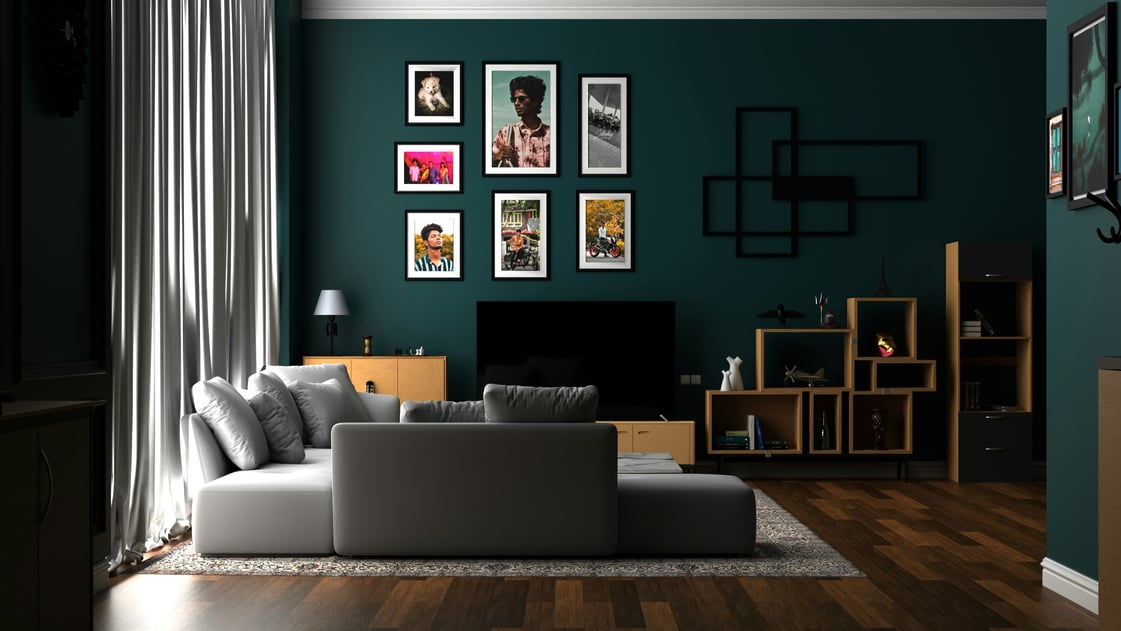

Choosing the perfect TV unit for your living room is more than just picking a piece of furniture—it’s about enhancing your space’s functionality, style, and comfort. With so many designs, materials, and features available, selecting the right TV cabinet can be overwhelming. Whether you have a modern minimalist home, a cozy traditional setup, or a compact apartment, the right TV stand can tie your entertainment area together while providing storage and aesthetic appeal.
In this guide, we’ll walk you through the key factors to consider when selecting a TV unit, from size and material to storage options and design compatibility. By the end, you’ll know exactly how to choose a TV stand that complements your décor, fits your space, and meets your entertainment needs.
Measure Your Space and TV Size
Choose the Right Material for Durability and Style
Consider Storage Needs: Open Shelving vs. Closed Cabinets
Match the TV Unit to Your Living Room's Style
Decide Between Wall-Mounted, Freestanding or Corner Units
Check Weight Capacity and Stability
Look for Cable Management Features
Think About Future-Proofing and Versatility
Set a Budget Without Compromising Quality
Read Reviews and Test Stability Before Buying
1. Measure Your Space and TV Size
TV units come in various materials, each offering different aesthetics and durability. Wooden TV stands, such as oak or walnut, bring warmth and a classic look, perfect for traditional or rustic interiors. For a modern vibe, sleek metal and glass combinations work well, offering a minimalist and airy feel.
Engineered wood (MDF) is a budget-friendly option that mimics real wood but requires careful handling. If you prefer an industrial look, consider concrete or reclaimed wood units. The material you choose should align with your room’s décor while ensuring long-term durability, especially if you have kids or pets.
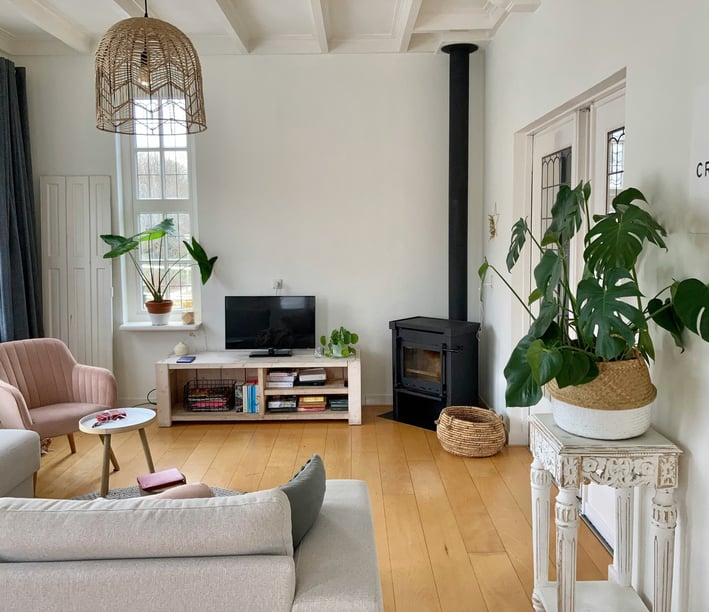

Storage is a crucial factor when selecting a TV unit. If you have gaming consoles, media players, or DVDs, look for units with built-in shelves, drawers, or cabinets. Open shelving offers easy access and a contemporary look but may require frequent dusting. Closed cabinets keep clutter hidden and are ideal for a clean, organized appearance.
Some TV stands also feature cable management systems to keep wires tidy. Assess your storage needs—do you need space for books, décor, or just electronics? A well-designed TV unit should combine functionality with style.
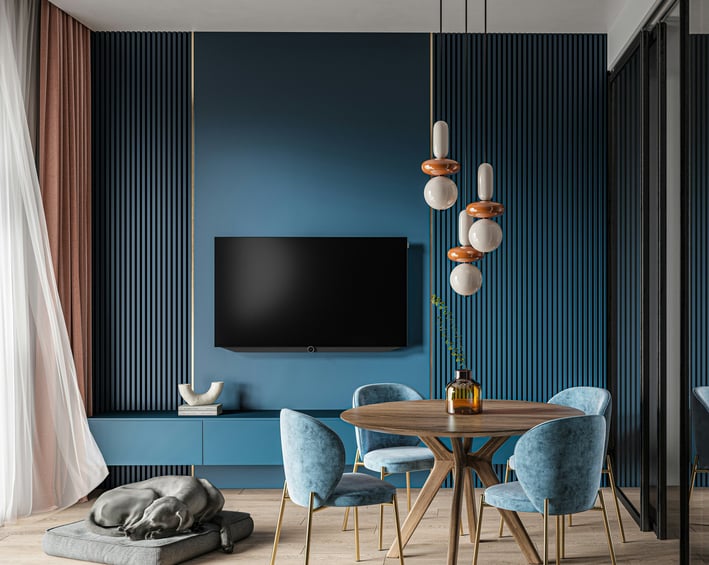

Your TV stand should complement your living room’s overall aesthetic. For a Scandinavian-inspired space, opt for light wood with clean lines. Mid-century modern designs pair well with tapered legs and warm tones.
If your décor is industrial, a metal-and-wood combination works best. For ultra-modern homes, high-gloss finishes and floating TV units create a sleek look. The key is to ensure harmony between your TV cabinet and existing furniture—avoid clashing colors or conflicting styles that disrupt the room’s flow.
Before purchasing a TV unit, the first step is to measure your available space and TV dimensions. A unit that’s too small will look out of place, while one that’s too large can overwhelm the room. Ideally, your TV stand should be slightly wider than your television to create a balanced look. For example, if you have a 55-inch TV, opt for a unit that’s at least 60 inches wide.
Additionally, consider the height—eye-level placement ensures comfortable viewing. Measuring your space also helps determine whether a floating shelf, a low-profile console, or a full entertainment center works best for your living room layout.
3. Consider Storage Needs: Open Shelving vs. Closed Cabinets
2. Choose the Right Material for Durability and Style
4. Match the TV Unit to Your Living Room’s Style
The placement of your TV unit depends on your room’s layout. Wall-mounted TV stands save floor space and create a floating effect, ideal for small living rooms. Freestanding units offer more storage and flexibility, allowing you to rearrange furniture easily.
Corner TV units maximize awkward spaces, making them perfect for compact or irregularly shaped rooms. Consider your room’s traffic flow—ensure the TV unit doesn’t block pathways or create obstructions.
5. Decide Between Wall-Mounted, Freestanding, or Corner Units
6. Check Weight Capacity and Stability
A sturdy TV unit is essential, especially for larger TVs. Check the weight capacity to ensure it can safely support your television and other electronics. Heavy-duty materials like solid wood or metal provide better stability than lightweight particleboard.
If you have a wall-mounted TV, ensure the brackets are secure. Wobbly or flimsy stands can be hazardous, particularly in homes with children or pets. Always prioritize safety alongside design.
7. Look for Cable Management Features
Tangled wires can ruin the look of an otherwise stylish entertainment setup. Many modern TV units come with built-in cable management systems, such as rear cutouts, cord clips, or hidden compartments. Some even have removable back panels for easy access to ports. A clutter-free setup not only looks better but also makes it easier to connect and disconnect devices.
If your chosen unit lacks these features, consider using cable sleeves or adhesive organizers to keep wires neat.
8. Think About Future-Proofing and Versatility
Your TV unit should adapt to future needs. If you plan to upgrade your TV size, choose a stand with adjustable shelves or extra width. Modular TV units allow you to add or remove components as needed. Some designs even convert into different configurations, such as a console table or a bookshelf. Investing in a versatile piece ensures longevity, saving you from frequent replacements as your entertainment setup evolves.
9. Set a Budget Without Compromising Quality
TV units range from budget-friendly to high-end luxury pieces. While it’s tempting to go for the cheapest option, consider durability and functionality. Solid wood and metal stands last longer than particleboard, making them a better long-term investment.
Look for sales, discounts, or multi-functional units that offer extra storage or convertible features. A well-chosen TV stand enhances your living room’s appeal and functionality, so balance cost with quality.
10. Read Reviews and Test Stability Before Buying
Before making a final decision, check customer reviews to gauge real-world performance. Look for feedback on sturdiness, assembly difficulty, and material quality. If possible, visit a showroom to test the unit’s stability in person. A slight shake should not make the unit wobble excessively.
Online shoppers should verify return policies in case the product doesn’t meet expectations. A little research goes a long way in ensuring you get the best TV unit for your home.
Final Thoughts
Selecting the right TV unit involves careful consideration of size, material, storage, style, and functionality. By measuring your space, matching your décor, and prioritizing stability, you can find a TV stand that enhances both your viewing experience and living room aesthetics. Whether you prefer a minimalist floating shelf or a robust entertainment center, the perfect TV unit balances practicality with design.
MOST READ
HOUSE TOURS
Stunning 2700 Sq. Ft. Nalukettu Home with a Modern Touch
2 MIN READ
HOUSE TOURS
Exploring a 5BHK Contemporary Home in Kerala
2 MIN READ
HOUSE TOURS
Elegant 3BHK Home Tour
2 MIN READ
HOUSE TOURS
Inside a Stunning Rs. 2 Crore Dream Home in Palai, Kerala – UrbanSpacee’s First Home Tour!
3 MIN READ
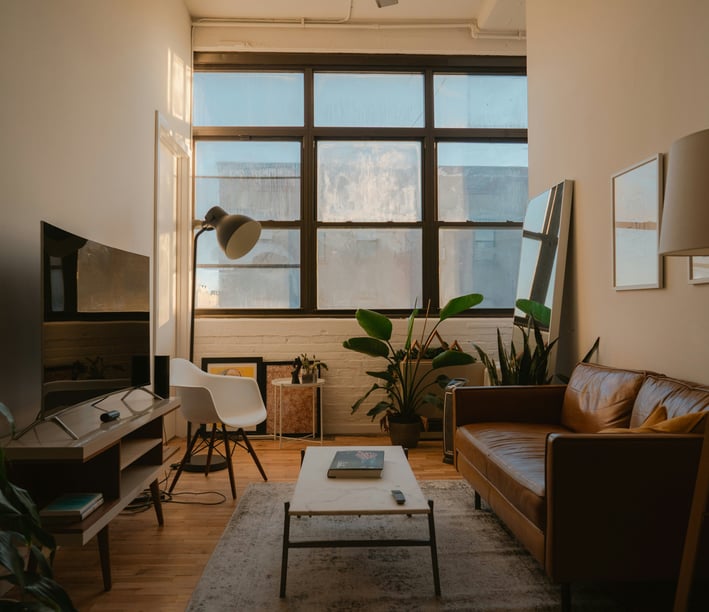

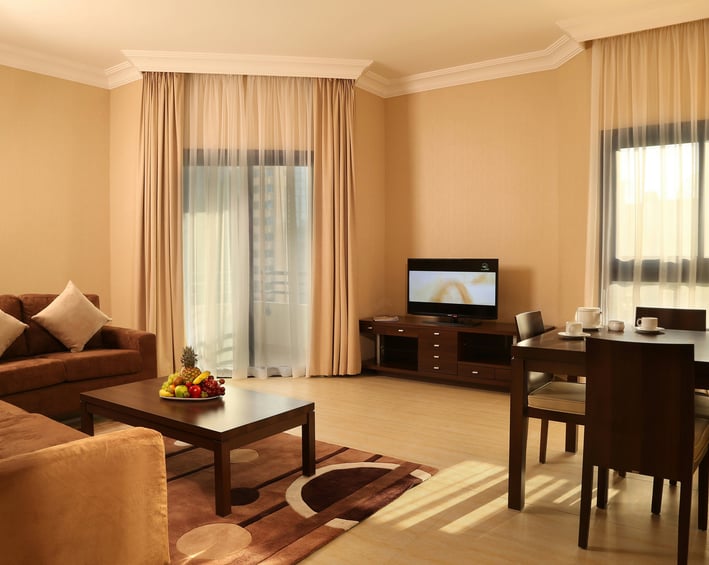

Follow Us
Explore smart furniture ideas for modern living.
For Enquiry
contact: info@urbanspacee.com,
+91 91886 37751
© 2025. All rights reserved./Terms and Conditions/Privacy policy
Newsletters
This blog contains affiliate links.For promoting there products ,we may earn a commission if you purchase through these links, at no extra cost to you.
